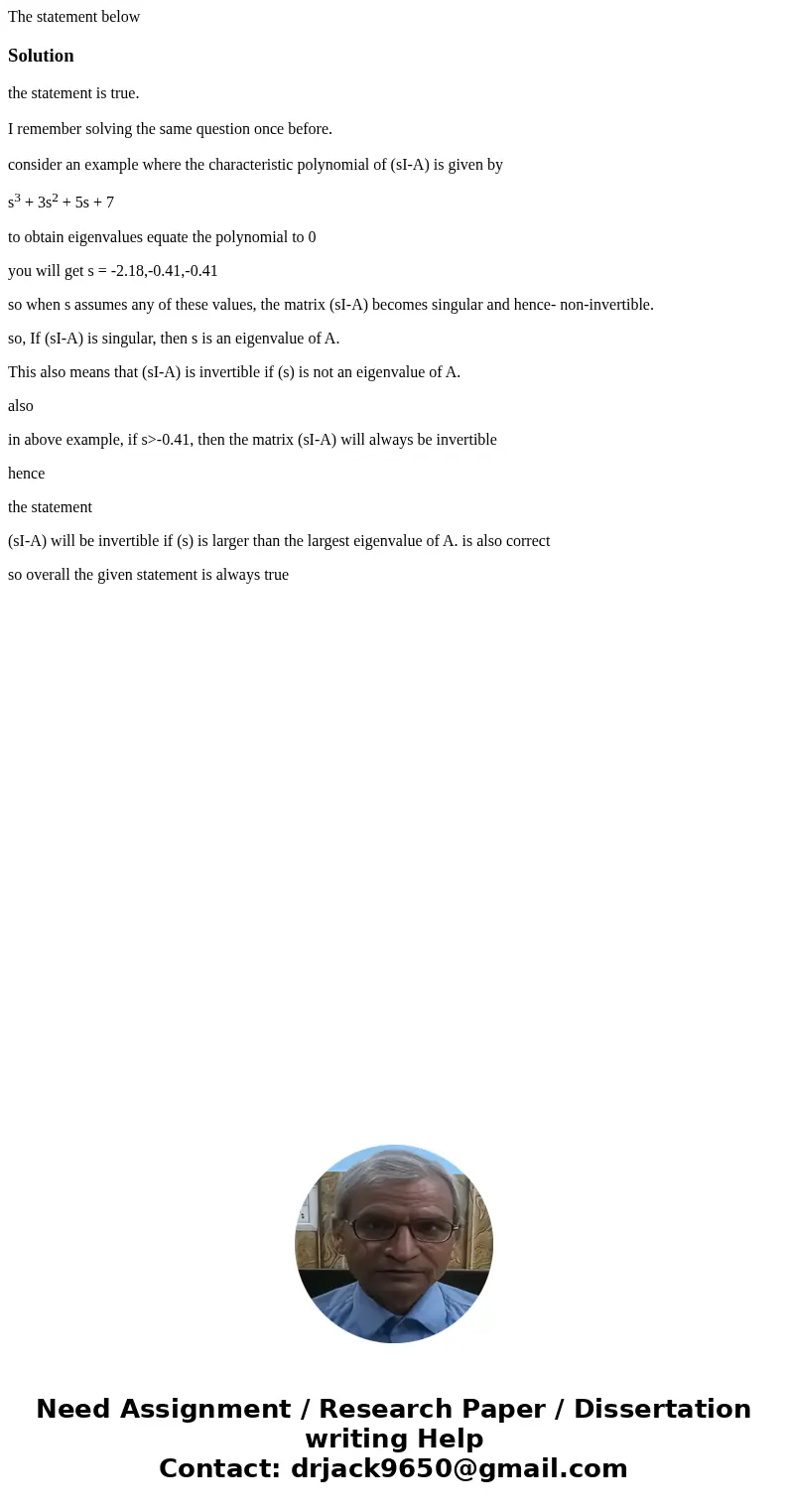The statement belowSolutionthe statement is true I remember
The statement below
Solution
the statement is true.
I remember solving the same question once before.
consider an example where the characteristic polynomial of (sI-A) is given by
s3 + 3s2 + 5s + 7
to obtain eigenvalues equate the polynomial to 0
you will get s = -2.18,-0.41,-0.41
so when s assumes any of these values, the matrix (sI-A) becomes singular and hence- non-invertible.
so, If (sI-A) is singular, then s is an eigenvalue of A.
This also means that (sI-A) is invertible if (s) is not an eigenvalue of A.
also
in above example, if s>-0.41, then the matrix (sI-A) will always be invertible
hence
the statement
(sI-A) will be invertible if (s) is larger than the largest eigenvalue of A. is also correct
so overall the given statement is always true

 Homework Sourse
Homework Sourse